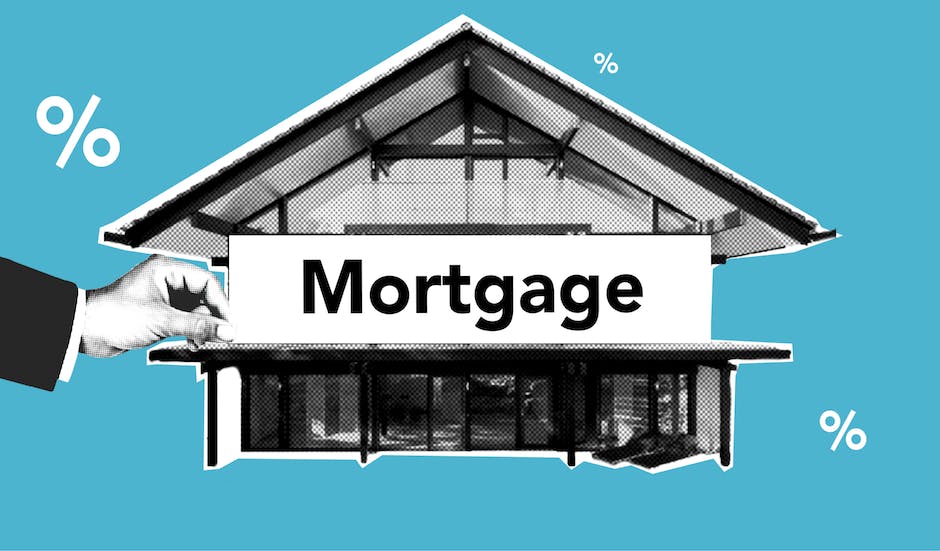Here’s some of the most popular real estate financing options and help to decide which one is right for you.
In the multifaceted world of real estate, understanding your financing options plays a pivotal role in ensuring successful transactions and potential investment returns. This dynamic sector is packed full of opportunities and possibilities for both first-time homebuyers and seasoned investors alike. Whether you’re aiming to buy a comfortable family home, seeking to invest in rentals, or contemplating refinancing your current property, getting familiar with the different types of real estate financing options is a crucial foundation. From understanding the basics of real estate financing to the importance of credit scores and the process of refinancing, this material aims to equip you with necessary knowledge and insights to help navigate your journey.
Understanding Real Estate Financing
Understanding Real Estate Financing
The concept of real estate financing revolves around the practice of using various financial products to reach certain objectives, these objectives generally revolve around the buying, selling, or investing in property or properties. Real estate financing is a critical aspect of any real estate venture, whether it be residential or commercial. Here is a brief overview of the key elements and processes involved in real estate financing.
The Concept of Buying and Selling Properties
Buying and selling properties are the backbone of the real estate industry. When an individual or entity decides to buy or sell a property, they are engaging in a significant financial transaction, which may necessitate a form of real estate financing. For example, a home buyer may take out a mortgage loan to finance the purchase of a residential property. Similarly, a real estate investor might utilize a combination of cash and credit to buy and subsequently sell commercial properties.
Mortgages and Their Role in Real Estate Financing
A mortgage is a type of loan specifically designed for the purchase of real estate. Essentially, a mortgage allows a buyer to purchase a property by borrowing money from a financial institution. The buyer then gradually repays the borrowed amount, plus interest, over a set period of time, usually 15 to 30 years. The institution, often a bank or credit union, secures the loan by holding the property as collateral until the loan is fully repaid.
Mortgages come in a variety of forms, each with their own set of terms and conditions. For example, a fixed-rate mortgage maintains the same interest rate for the lifetime of the loan, while an adjustable-rate mortgage has an interest rate that can fluctuate over time. Other types of mortgage products include interest-only mortgages, jumbo mortgages, and balloon mortgages.
Mortgages are not only used by individual home buyers; real estate investors also put them to use to finance their purchasing activity. An investor may take out a mortgage to buy a property, improve it, then sell it at a profit. This strategy, known as flipping, can be a lucrative form of real estate investment if executed correctly.
Role of Financial Institutions in Real Estate Financing
Financial institutions, such as banks and credit unions, are integral players in the world of real estate financing. They serve as lenders, providing the funds necessary for buyers to complete their property transactions.
These institutions assess the buyer’s financial situation, including credit score, income, and debt-to-income ratio, to determine the amount of money they are willing to lend and at what interest rate. Should the buyer default on their loan, financial institutions have the right to seize the property and sell it to recoup their losses, a process known as foreclosure.
Banks, credit unions, and other lending institutions also provide refinancing options for existing mortgages. This allows homeowners to take advantage of lower interest rates or reduce their monthly payments by extending the term of their loan.
Moreover, financial institutions offer home equity loans and home equity lines of credit, which allow homeowners to borrow against the equity they’ve built in their property. These lending products can be used to finance home improvements, consolidate debt, or cover other significant expenses.
Real estate financing may initially appear to be a complex domain, with different facets like property transactions, mortgage systems, and the integral part that financial institutions play in this field. However, gaining a comprehensive understanding of these components is not only necessary but very feasible. This knowledge is key for anyone wishing to navigate the world of real estate, and to make informed decisions—whether it’s about acquiring, managing, or investing in properties.

Types of Real Estate Financing
Digging Deeper into Real Estate Financing: The Basics and Beyond.
One of the significant steps in any real estate transaction is the acquisition of financing. There is a broad spectrum of options available, each having its unique set of advantages and disadvantages. Thus, gaining an in-depth understanding of the various types of real estate financing becomes crucial. This will help you evaluate and determine the most suitable financing option according to your individual needs and your financial situation.
Conventional Loans: A familiar choice.
The most common type of real estate financing is a conventional loan. These loans are offered by banks, credit unions, and other lending institutions and follow standard guidelines set by government-sponsored entities. The borrower usually needs to make a down payment of at least 20% of the purchase price. However, there are some conventional loans that allow a lower down payment with private mortgage insurance.
One of the advantages of conventional loans is the interest rate. If you have a good credit score, the interest rate on a conventional loan can be lower than other types of loans. However, the downside of conventional loans is their strict qualification requirements. These loans usually require a higher credit score and stable income.
FHA Loans: A helping hand for first-time home buyers.
The Federal Housing Administration (FHA) offers a loan program for individuals who might not qualify for conventional loans. FHA loans are particularly beneficial for first-time home buyers, offering down payments as low as 3.5% of the purchase price.
One of the major advantages of FHA loans is the more lenient qualification requirements. FHA loans often allow lower credit scores and higher debt-to-income ratios than conventional loans. However, all FHA loans require mortgage insurance, potentially increasing the costs over the life of the loan.
VA Loans: Assistance for service members.
If you’re a veteran or active-duty military, VA loans, guaranteed by the Department of Veterans Affairs, could be a viable option. VA loans often provide 100% financing, meaning no down payment is required.
The significant advantage of VA loans is the no down payment requirement. These loans also do not require mortgage insurance, which can significantly reduce monthly payments compared to other loan options. However, VA loans do require a funding fee, which can be quite expensive if not rolled into the loan.
Seller Carry Back: When the seller plays the lender.
Seller carry back is a form of financing where the seller carries a note for the balance of the purchase price minus the buyer’s down payment. This type of financing can be beneficial when traditional mortgage financing is not available or when the buyer wants to save on closing costs.
One of the benefits of seller carry back financing is its flexibility as the terms can often be negotiated. However, the interest rates on these types of loans can be higher than other financing types, and the property is usually used as collateral.
Hard Money Lenders: For investment properties and flips.
Hard money lenders are primarily used by real estate investors for short-term investment such as fix and flips or for real estate that cannot get conventional financing such as distressed properties. Usually, these loans are backed by the property’s value rather than the borrower’s creditworthiness.
Though they allow quick funding and flexible lending criteria, hard money lenders charge considerably higher interest rates and fees than traditional lenders. Hard money loans also typically have shorter loan terms, often around 12 months.
Understanding the various real estate financing options available is crucial for prospective buyers. These options should be carefully evaluated, taking into account one’s financial standing, long-term objectives, and the type of property under consideration. Guidance from an experienced mortgage advisor can be instrumental in aiding individuals navigate through this crucial decision-making process.

Choosing the Right Real Estate Financing Option
A Deep Dive into Real Estate Financing
At its core, real estate financing refers to the capital or funds that a potential buyer secures from a financial institution or a lender to facilitate the purchase of a property. The landscape of real estate financing is diverse, comprising various types of options, each with its unique features, advantages, risks, and prerequisites. These options include conventional mortgages, government-insured mortgages, fixed-rate mortgages, adjustable-rate mortgages, and hard money loans, among others, that are often preferred by many.
Evaluating Your Financial Health and Risk Tolerance
Before delving into the different types of financing options, it is imperative that you thoroughly assess your financial situation. This includes understanding your income, credit status, and risk tolerance.
Your income is a decisive factor in determining how much you are capable of borrowing and paying back. Your credit status shows your track record with previous credit responsibilities and assists lenders in determining whether you are creditworthy or not.
While purchasing real estate, especially investment properties, always involves a level of risk, certain financing options carry relatively lower risks than others. This is evaluated in terms of your risk tolerance – the level of risk you are willing and able to endure.
Understanding Various Real Estate Financing Options
- Conventional Mortgages: This common type of financing does not carry any backing from the government and usually comes with competitive interest rates. While considered lower risk due to its standard procedures and government regulations, conventional mortgages often require higher credit scores and a larger down payment.
- Government-Insured Mortgages: Unlike conventional mortgages, government-insured loans are backed by U.S government agencies to help borrowers who cannot afford a large down payment or do not meet the credit requirements for a conventional loan.
- Fixed-rate Mortgages: This type of financing locks your interest rate for the entirety of the loan, providing stability and predictability for your payments. While this can be a safe option in a low-interest-rate environment, it may not be the most cost-effective route if interest rates decrease over time.
- Adjustable-Rate Mortgages (ARM): In contrast to fixed-rate mortgages, ARMs come with an interest rate that adjusts over time based on market conditions. Initially, ARMs begin with a lower rate than a fixed-rate mortgage but the risk of potentially higher interest rates in the future should be considered.
- Hard Money Loans: This option is commonly leveraged by real estate investors for purchases that need quick financing or do not qualify for traditional loan prerequisites. Hard money loans, however, often have higher interest rates and shorter loan terms than conventional financing options.
Interest Rates: A Significant Determinant
Interest rates, often driven by economic conditions and federal policies, are another significant determinant when picking a real estate financing option. They not only impact the borrower’s monthly payments but also the total cost of the loan over its term. Potentially, this could mean paying tens-of-thousands of dollars less or more subtlety influenced by the interest-rate environment at the time of securing your loan.
Property Type: Residential Vs. Commercial
Finally, the type of property you wish to finance can dictate which loan options are available. Residential loans might have lower interest rates and relaxed borrower requirements but come with strict regulations regarding how the property is used. On the other hand, commercial loans offer flexibility in the property’s usage but may involve additional requirements like higher down payments and stricter lender qualifications.
To make informed decisions about real estate financing options, it’s important to have a deep understanding of your personal financial situation, the variety of loans available, your appetite for risk, current interest rates, and the specific features of the property in question. Engaging with a financial advisor or mortgage professional can be helpful in navigating this complex process and ensuring that you make the best possible decision.

The Role of Credit in Real Estate Financing
Understanding the Role of Credit in Real Estate Financing
Your credit score significantly influences your eligibility for real estate financing. Essentially, it provides a quantitative assessment of your reliability as a borrower – the higher your score, the more likely you are to be offered favorable loan terms and rates. For potential borrowers, gaining insight into the impact of credit scores on real estate financing can be instrumental in accessing optimal and financially prudent borrowing options.
Importance of Credit Scores in Real Estate Financing
A credit score can significantly impact the terms and conditions of your real estate financing. High credit scores signal to lenders that a borrower is less risky, which in turn can qualify them for lower interest rates or larger loan amounts. Moreover, credit score not only affects one’s ability to obtain a loan, but it also plays a crucial role in determining the interest rate, loan amounts, and loan programs for which they may qualify.
How Credit Influences Interest Rates
Your credit score and credit history provide insight into your past behavior in dealing with financial commitments. Lenders look at this information to assess how likely they are to receive timely payments on the loans they extend. The higher your credit score, the more reliable you appear as a borrower. This reliability can translate into lower interest rates on loans, making the overall cost of borrowing lower for those with good credit. On the other hand, borrowers with lower credit scores are often subjected to higher interest rates due to the perceived risk of default by lenders.
Improving Credit for Better Lending Terms
Improving your credit score is an essential step towards securing better lending terms, and it begins with understanding your credit report. Maintain timely payments, reduce overall debt, dispute errors on your credit report, and refrain from closing old credit accounts unless necessary. All these steps can influence your credit score positively.
Initiate a regular review of your credit report to ensure it is accurate. Wrong information can negatively impact your score. If you find inaccuracies, contact the credit bureau and the organization that provided the information to rectify it.
Building or repairing credit can take time but demonstrating a pattern of responsible financial behavior is key. Avoid losing track of bills and making late payments because delinquencies have a damaging effect on credit scores.
Moreover, avoid high credit utilization ratios; try to use 30% or less of your available credit. A higher credit utilization suggests you may be over-relying on credit, which can negatively impact your score.
Credit & Real Estate Financing
Good credit scores play an instrumental role in your ability to secure beneficial loan terms and can significantly influence your real estate financing options. Starting on an earnest journey of improving your credit through responsible financial practices puts you on the path towards a tangible advantage, leveraging your negotiating power to lock in lower interest rates.

Refinancing Your Real Estate Loan
Navigating the Refinancing Process
Refinancing represents a viable avenue of switching out your current mortgage for a newer one, usually done when interest rates slide or your financial bearings shift. By choosing to refinance, you might lower your cumulative loan costs, decrease your monthly payments, or even expedite your loan payoff schedule if planned strategically.
Why and When Refinancing Might be a Good Option
Refinancing can be a beneficial tool in many circumstances. If interest rates have dropped significantly since you took out your initial loan, then refinancing could help you reduce your monthly payments or shave years off the life of your loan. Similarly, if your credit score has improved or you’ve built substantial equity in your home, refinancing could allow you to qualify for a better rate or tap into your home’s value.
It could also be a thoughtful strategy if you have an adjustable-rate mortgage (ARM) and want to switch to a fixed-rate mortgage for more stable payments.
Navigating the Refinancing Process
The process of refinancing a real estate loan is similar to the process of securing an initial mortgage. You’ll need to shop around for the best rates, submit financial documents to potential lenders, get an appraisal of your property, and close on your new loan.
One thing to note is that you may have to pay certain fees during the refinancing process, similar to the closing costs of an original mortgage. These may include application fees, loan origination fees, appraisal fees, and more.
Potential Costs
Refinancing does not come without costs and it’s crucial to take this into account when evaluating your options. The primary expenses are associated with closing costs, which typically amount to between 2% and 5% of your loan amount. These costs include application fees, lender charges, legal fees, and appraisal charges. Moreover, there may also be prepayment penalties on your existing mortgage.
Benefits of Refinancing Your Property Loan
If successfully leveraged, refinancing can offer a myriad of benefits. Here are some potential advantages:
- Lower Interest Rates: This is often the primary reason for refinancing a real estate loan. By securing a lower interest rate, you’ll pay less over the life of the loan.
- Change in Loan Term: Refinancing can also allow you to shorten your loan term. While this may increase your monthly payments, you’ll pay less interest in the long run and pay off your loan faster.
- Cash-Out Equity: With enough equity in the home, you might opt for a cash-out refinance, which allows you to take out a new mortgage for more than you owe and get the difference in cash.
- Debt Consolidation: If you have high-interest debt, like credit cards, you might use a refinance to consolidate those debts into your mortgage at a much lower interest rate.
Examining the refinancing of your property loan as a financial strategy means navigating through a multifaceted process. It’s crucial to have a robust comprehension of the core process, the associated costs, and the potential benefits. Therefore, seeking consultation from a financial adviser or a seasoned real estate professional is a non-negotiable step before you finalize your decision.
Real Estate Financing and Real Estate Investing
Diving into Real Estate Investing and its Financing
Taking the leap into Real Estate Investing involves buying, maintaining, and then selling real estate to generate a profit. Profits are typically drawn from rental income, the property appreciating over time, or a combination of both. Financing, in this context, holds a critical position as it provides the means for most real estate investors who often lack the required capital to purchase property outright.
The property in question could be targeted for either commercial or residential use, but the fact remains that the utilization of debt leverage and mortgage financing enables investors to acquire properties that lie beyond their immediate monetary grasp.
Common Real Estate Financing Options
The most common forms of financing in real estate are through bank loans and private investors. There are several types of bank loans available, ranging from conventional loans to adjustable-rate mortgages. Some of these loans may require a sizeable down payment, while others could be acquired with a lower down payment, or even no down payment in certain situations, assuming the investor meets specific criteria.
Mortgage loans are designed to be paid back over an extended period, typically between 15 and 30 years, with the property serving as collateral.
Alternatively, some investors choose to partner with private investors or financial institutions to secure the required capital. This typically involves offering them a percentage of the profits in return for their investment. This route may be preferable for some investors as it may offer more flexible terms than traditional bank loans.
Optimizing Returns through Financing Strategies
Real investors use a variety of strategies to optimize their returns. One of the most effective ways is through leverage. By using borrowed money to finance part of the investment, the investor can acquire a more expensive property and potentially earn a higher return.
Investors might also optimize returns by refinancing their properties. Refinancing allows investors to reduce the interest rate on their loans, extend the loan’s term, change from an adjustable-rate mortgage to a fixed-rate mortgage, or get an equity cash out.
Impact of Market Trends on Financing and Investing
Market trends can significantly impact real estate investing and the available financing options. In a seller’s market with high demand for properties and rising prices, investors might find it harder to acquire affordable financing. In such situations, interest rates on loans may be higher, and lending standards might be stricter.
During a buyer’s market, when demand is lower, and properties are more affordable, banks may be more willing to provide loans, often with more favorable terms.
Understanding these trends can help investors assess the risks and rewards of investing in certain markets and decide which financing options are the most feasible.
Investors must also monitor broader economic indicators such as employment trends, interest rates, and inflation, as these can also impact property values and the return on investment.
Real estate investing and financing can be complex due to the many factors and variables at play. However, understanding the basics and keeping tabs on market trends can go a long way in making informed decisions and succeeding in this lucrative field.
Through this journey, you’ve explored the depth of real estate financing options, understood the importance of credit scores, and delved into the significance of choosing the right financing option for your circumstances. The essence of real estate investing and market trends has also been highlighted. Ultimately, effective real estate financing strategies optimize potential returns and minimize risks. The complexities and variables that accompany each financing option demand thorough research, strategic planning, and careful decisions. This newfound understanding of real estate financing will be an invaluable tool in not just buying or selling properties, but in potentially shaping your financial future and investment portfolio.




